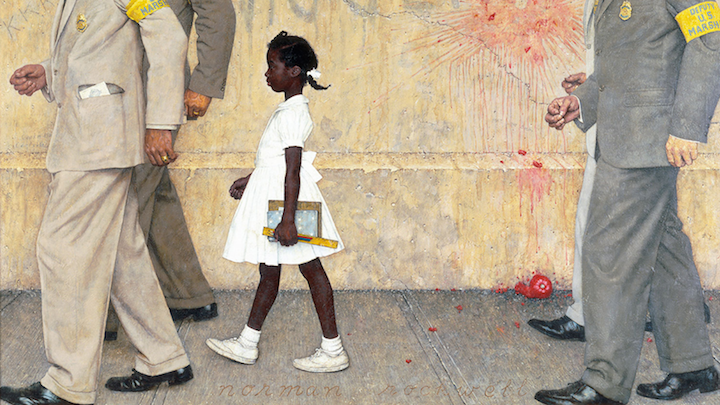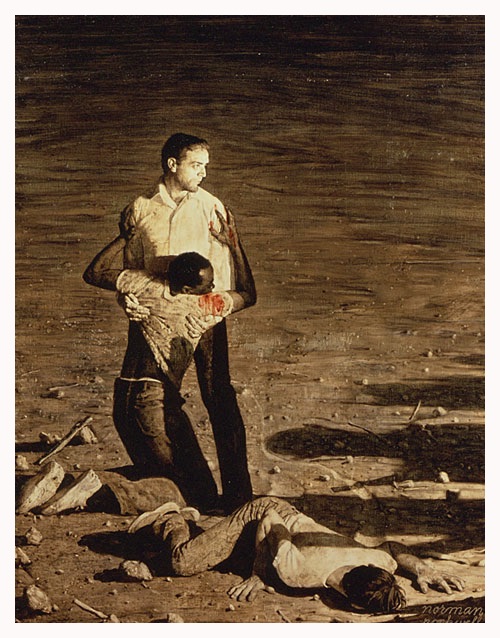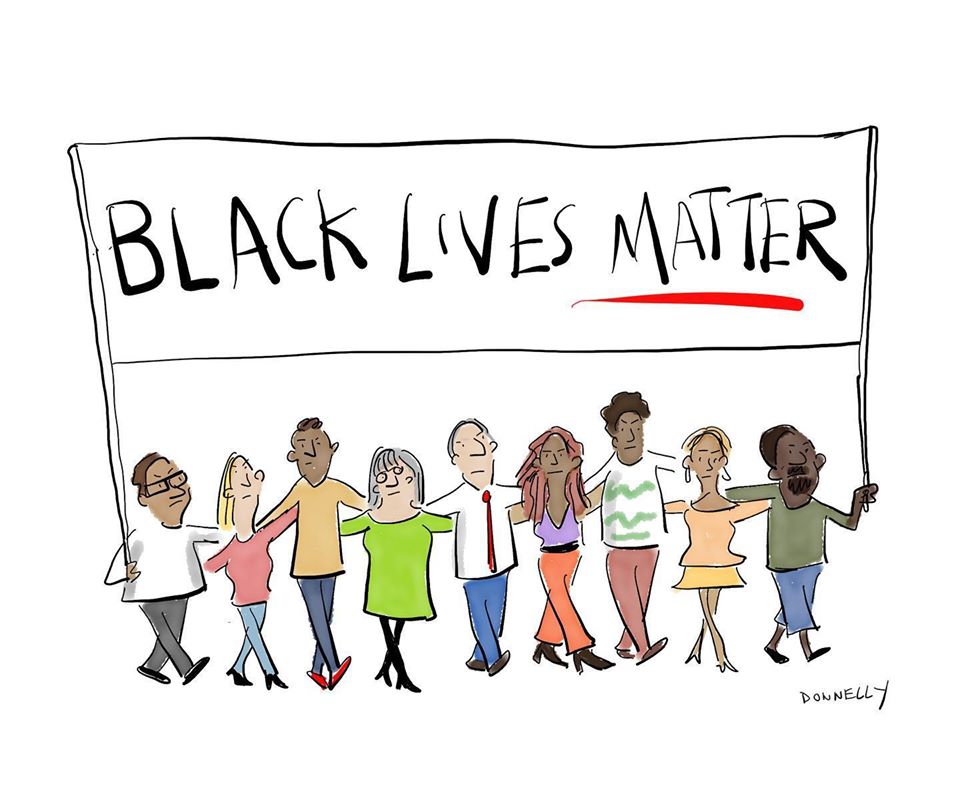Hope in Times of Despair: Message from the Director

The Problem We All Live With, Norman Rockwell. 1963. Story illustration for Look, January 14, 1964. From the permanent collection of Norman Rockwell Museum. Image © Norman Rockwell Museum. All Rights Reserved.
Dear Community,
When the civil rights movement was at its height during my childhood in the 1960s, visual images brought to the world the violence, terror, and injustices of the Jim Crow era, cries of citizens, and a society stretched to its limits; a society protesting, pleading for justice and social change. Photographs of citizens attacked by police dogs, fire hoses, angry mobs yelling at peaceful protesters, and images of guns wielded by US military, reverberate through our collective memories.
Those too young to have lived through these times of despair, hope, and change hold contemporary images of the horrors of racism in their own lifetimes provoked by enormous devastation and injustices. From Hurricane Katrina, to the discriminatory impacts of COVID-19, the twenty-first century’s published images chronicle the marginalization and terrorization of Black American citizens and peaceful protestors who take a stand for justice.
Artists respond to world events or crises and create images for documentation and healing. Viewed by many as a painter of white America, Norman Rockwell early on became a lifetime member of the NAACP and used his influential illustration platform to address subjects of social change. He invited conversation about America’s contradictions and inequities, contrasting her promise of freedom, with the reality of two Americas.

Murder in Mississippi, Norman Rockwell. 1965. Unpublished. From the permanent collection of Norman Rockwell Museum. © Licensed by Norman Rockwell Family Agency. All Rights Reserved.
Rockwell painted pivotal images that helped open hearts and minds, invited dialogue, and illuminated the racial injustices that divided America. On the nation’s long march toward equality, he captured a moment of hope and compassion, The Problem We All Live With (seen above), upheld by United States Marshals, deployed for good, who proudly and strongly stood for justice for the weakest and most innocent citizens, America’s children, to provide access to equal education.
Admired widely as a painter of hope and optimism, one who always saw the best in people, Rockwell could not find optimism in one event that touched a deep and raw nerve in the nation. Incensed by the disappearance and murders of young volunteers for racial justice, he went to his studio and painted from his imagination an image that was so searing that even he could not find a hopeful metaphor. Murder in Mississippi documented the killing of James Chaney, Mickey Schwerner, and Andrew Goodman who dedicated and lost their lives to the Civil Rights Movement, hunted down by a vigilante posse.
Today, five decades later, all too frequently, all too normalized, we continue to witness Black American citizens going about their daily lives, whether jogging, shopping, sleeping, or driving, killed with impunity by citizen vigilantes or officers of the law.
Lives lost like Florida teenager Trayvon Martin (2011), Breonna Taylor (2020), to Minneapolis citizen George Floyd (2020), are all too redolent of the murders of teenager Emmett Till (1955) and civil rights volunteer James Chaney (1964), and so many, many, other Black lives, killed because of prejudice toward the color of their skin.

Black Lives Matter, © Liza Donnelly, 2020. All Rights Reserved.
As during Rockwell’s time, illustrators continue to use the power of their pen to call out racial injustice. Cartoonist Liza Donnelly, invites with kindness, solidarity, and inclusion regardless of the color of one’s skin.
As we recognize the disproportionate impacts of COVID on minority populations, who, whether due to food insecurity, unequal access to health care, or lack of other basic foundations of survival such as housing and education, let’s acknowledge that violence toward anyone is violence toward everyone.
Let’s confront and acknowledge these injustices, these prejudices, conscious or unconscious biases, and invite dialogue, invite our better selves to see each other as worthy of love, compassion, and kindness. People are suffering. People are sick. People are dying. People are unemployed. People are scared. People are frustrated. People are angry. People are tired. People feel hopeless, disenfranchised, exhausted. People feel desperate. To the breaking point. Let us lift up all lives.
Let us be reminded by Dr. Martin Luther King, Jr., “The ultimate measure of a man is not where he stands in moments of comfort and convenience, but where he stands at times of challenge and controversy.” When your rights are not protected, my rights are not protected. Jerry Pinkney’s humanistic artworks inspired by the lives and accomplishments of African Americans and MLK, reject racial stereotypes, inspiring hope and understanding (below).

A Place to Land: Martin Luther King Jr. and the Speech That Inspired a Nation, illustrated by Jerry Pinkney, 2019. © Jerry Pinkney. All Rights Reserved.
Join me on this quest to stand for neighbors, one and all, and to demand reform of a policing and justice system that too often exercises overbearing force that devalues human life. Let’s engage in conversation and paint an image that envisions a more just world.
Let’s stand together and join in community conversation. Norman Rockwell Museum with community leaders will host a virtual Town Hall Forum, Thursday, June 11 to invite a conversation with the community on race and healing, click here to register.
Please come together to share your thoughts, fears, frustration, ideas, and hope. Together we move forward.
We stand together,
Laurie Norton Moffatt
Director/CEO


